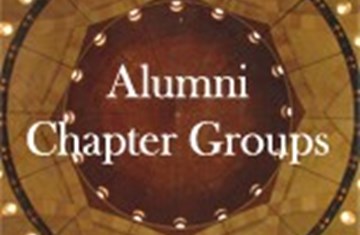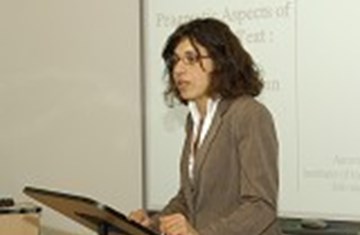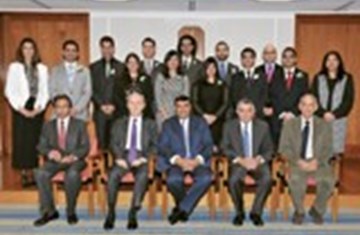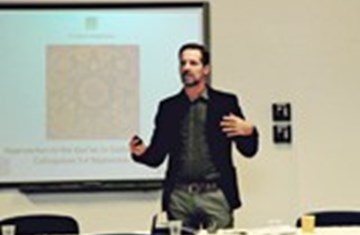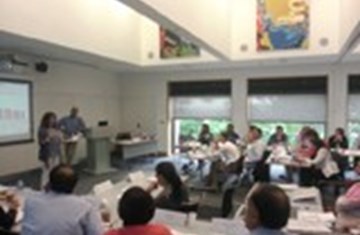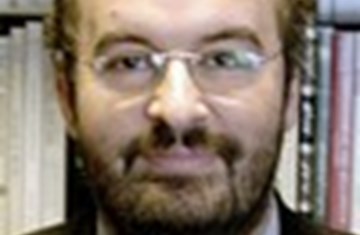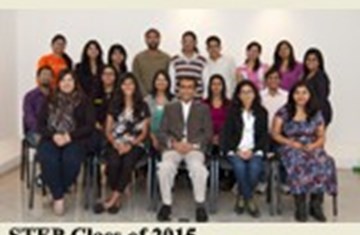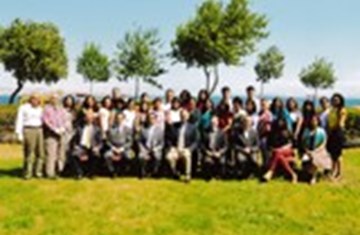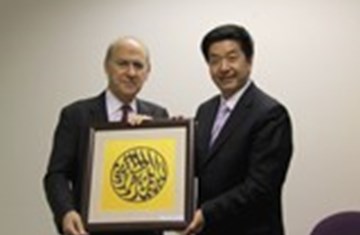Valedictory Address: Video
Sabrina Datoo, The 25th Anniversary Graduation Ceremony
Le Meridien Grosvenor House Hotel, London
Your Highness,
Distinguished Guests,
Good evening.
I am honoured to have been chosen to speak to you tonight and feel privileged to be speaking in the presence of His Highness the Aga Khan. I would like to begin therefore, by offering my deep gratitude to you, Your Highness – and I’m sure I speak on behalf of many of us here tonight, in offering our gratitude – for your love, energy and dedication to this community and for your investment in The Institute of Ismaili Studies and its graduates. Thank you.
In November of 1977, the IIS was inaugurated, here in London. A few months later, in January of ’78 I was born in Toronto to first generation Canadians from Tanzania. My parents, raised with an acute awareness of the importance of education, came to Canada with one mantra on their lips, “educate your children”. So they both worked ten, twelve, sometimes thirteen hour days. They made the sacrifices and provided the love that enables me to stand here today with a university degree and a postgraduate certificate behind me. Today I would like to acknowledge their never-ending support and send them my love and thanks.
My parents went to Aga Khan schools and I, the IIS; we are two generations intimately connected to and guided by the modern institutions of the Ismaili imamat. And as much as my parents were guided to seek sound education for their children, I feel that my generation has been guided to seek something for our global community. What is that something? I think this ‘something’ involves finding a way for people with varied histories, different ethnicities, and varied languages to live together in mutual recognition and peace. This is a challenge for all the world’s communities – and it is a challenge for the Ismaili community in so far as it reflects global diversity. By way of my personal experiences at the IIS, I’d like to make a few remarks on the difficulties and the rewards of accepting this challenge.
When I arrived at the hostel, my first night in London, I was given a list of five names - fellow classmates who had already arrived. Now, up until that point, most of the people I knew in my suburban Toronto universe, had names drawn from a particular cache. Girls were Salima, Zahra or Farah, and guys were Karim, Rahim or Hussain. Last names, were for the most part, ‘ji’-names: Kanji, Manji, Damji Shivji, Ramji etc. So when I read the names Nigina Mirbozkhonova, Maruf Kandakov; Muzaffer Zoolshoev; Obidkhon Kurbonkhonov, and Sadsho Sadshoev I was on unfamiliar ground. It is embarrassing to admit my own ignorance now, yet that feeling of puzzlement was my first small introduction to the larger historical and social differences indicated by our names.
Our names give some indication of the diversity of our class: we come from seven countries – Canada, China, India, Iran, Pakistan, Portugal, and Tajikistan – and between us speak at least 15 languages. Our nationalities are not enough to express our diversity – for each one of us also has a special relationship to the particular region in which she or he was raised, and to a first language, which isn’t necessarily the language of the state. For example, while I am Canadian, I feel a stronger sense of belonging to Toronto, Ontario, than to say, Quebec; my first language is Kutchi, which I speak in addition to English and broken French. As we began a process of befriending, I learned that each one of us in this class has similarly layered senses of belonging. Yet we did, at times, transcend these local identities and unite in co-operative effort.
The first classmate I met, back at the hostel, was Sadsho. I have no idea what he thought of me: this Indian-looking creature, who wasn’t quite Indian and who insisted on engaging in idle chatter. Well, he introduced me to the others and they took me on a night-time tour of Hyde Park and the Trocadero. As we walked around, I think we felt at home in each other’s company – complaining about London, reminiscing about our families. More students arrived at the hostel. One night found us huddled in Faezeh’s room, helping her look for accommodation. A copy of the local paper was distributed amongst us – and each person scanned a small section. We read the entries out loud between mugs of tea and friendly banter.
Of course this idyllic community didn’t last for two years. I’m not sure that it made it past two weeks, actually. Nonetheless it was a formative experience for me. It resonated with the visions of society with which I was raised and it was a concrete experience that suggested that something like ‘unity-in-diversity’ was possible.
My firm belief in that possibility was, however, tested over the next two years. Our classroom discussions were often tense: differing ideologies, differing visions of ‘the good life’ emerged in competition. I was naively surprised that my classmates weren’t singing the praises of North American feminism, as I had been raised to. Instead, we clamoured to contribute varied personal experiences and defend contrasting points of view. Those heated discussions were perhaps part of a process of coping with our differences. And I don’t think I could’ve learned in Canada that building these friendships requires conscious effort and hard work.
Our class, for two years oscillated between moments of unity and moments of melting away into separate communities. I want to raise the point that the last two years have been remarkable precisely because of trying to maintain these peculiar friendships. This befriending process has entailed difficulty; yet it has also thrown up moments of joy and of learning and it is what I will value most from my time at the Institute.
I think we, as a class, should be proud of trying to build friendships across the boundaries of ethnicity, language, and history. It is my hope that the classes after us continue this tradition, and it is my hope that the Institute continues to invest in this tradition – a tradition of building friendships – in addition to investing in our intellectual growth. An investment in the social life of students at the Institute is a precious thing. Since the friendships made here may likely build the foundation of the tolerant, cosmopolitan, global community that we envision for the future.

